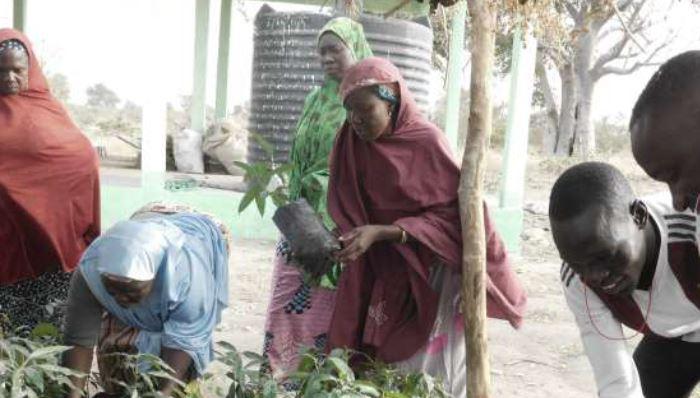- Home
- Worldwide
- CIRAD worldwide
- Projects
- Innovacc
Innovation for Adaptation to Climate Change - INNOVACC

Cameroun © Cirad
Issues
Climate change is significantly affecting northern Cameroon. While communities have, over time, implemented empirical approaches to reduce risks, these adaptation strategies may no longer be effective under future climate scenarios. In addition, adaptation to climate change is further complicated by other factors, such as demographics, security, internal migration, declining grazing lands, and access to resources and finance. Climate information can help farmers develop better adaptation strategies.
However, the already weak agricultural extension services in the project area do not provide the necessary support. Another major concern related to climate change mitigation is the energy sector. With fuelwood accounting for two-thirds of the country's primary energy consumption, this results in the degradation of already fragile landscapes. Finally, adaptation to climate change and mitigation of its effects can promote the emergence of new businesses, especially for women and youth. However, this requires structuring producer groups, training them and linking them to markets.
Description
The Innovacc project aims to improve the capacities of producers and breeders to adapt to climate change and the capacity of institutions to enable this adaptation. Improving knowledge is essential to fight against climate change. Five PhD students will conduct in-depth research on specific topics, namely the impact of climate change on agricultural production, the contribution of agroforestry to climate change adaptation, and the role of the institutional and policy environment in promoting climate-smart practices. The estimation of the impact of climate change on cotton and cereal production and the evaluation of different adaptation options through modeling and field experimentation will guide the recommendations to farmers.
In concrete terms, the activities will be organized into five components:
- Strengthen the capacity of producers and breeders and their production systems to adapt to climate change;
- Improving climate information services;
- Developing sustainable energy services based on renewable resources;
- Promote women's empowerment and create green jobs for youth;
- Improving institutional and governance frameworks and supporting policy mechanisms to address climate change.
Expected results
- A sustainable improvement in agropastoral productivity and household income;
- A better adaptation and resilience of populations to climate change;
- Reduced GHG emissions from the agricultural sector through low-carbon practices and technologies.
























